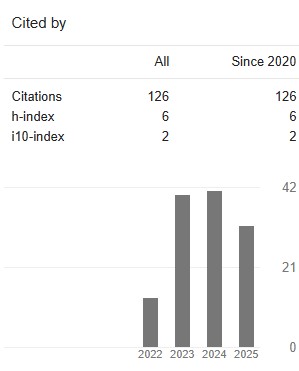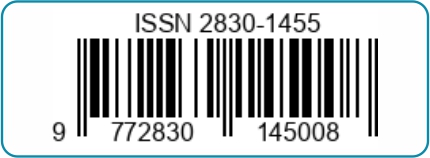Kriteria Fī Sabīlillāh sebagai Mustahik Zakat pada Lembaga Amil Zakat Nasional Wahdah Islamiyah Pusat
Fī Sabīlillāh Criteria as Zakat Mustahik at the National Amil Zakat Institution of Centre of Wahdah Islamiyah
DOI:
https://doi.org/10.36701/al-khiyar.v2i2.658Keywords:
zakat, Laznas, Wahdah Islamiyah, fī sabīlillāh, mustahikAbstract
This study aims to determine and understand the criteria of fῑ sabῑlillāh as zakat mustahik at the National Amil Zakat Institution (Laznas) of Centre of Wahdah Islamiyah. The study use a qualitative type of field research using a normative approach. The research results found are as follows; (1) Fῑ Sabῑlillāh is one of the eight groups who are entitled to receive zakat. The definition of fῑ sabῑlillāh itself is a deed that leads to the pleasure of Allah swt. and His heaven, especially jihad to elevate the sentence of monotheism. At present, there are more categories of fῑ sabῑlillāh, such as the construction of mosques, hospitals, schools, orphanages, orphans and other da'wah facilities. (2) The criteria for fȋ sabȋlillāh as zakat mustahik at Laznas Wahdah Islamiyah as also used as a reference by the National Amil Zakat Agency (BAZNAS), that fȋ sabȋlillāh are all activities that support da'wah activities, both da'wah implementers (da'i), da'wah institutions and facilities infrastructure that supports the da'wah itself. The determination of mustahik anāf fȋ sabȋlillāh is carried out after going through several stages of the survey of mustahik candidates. The data obtained from the survey is then processed whether the prospective mustahik deserves to receive zakat or not, the next is sorting the program according to the needs of the mustahik. (3) The distribution of zakat fȋ sabȋlillāh at Laznas Wahdah Islamiyah is carried out after the mustahik selection process using the survey method. Laznas Wahdah Islamiyah's strategy in distributing zakat is to see which asnaf is a priority and is encountered in its management. The distribution of funds is carried out directly by Laznas Wahdah Islamiyah.
Downloads
References
Arsal Salama, wawancara, 2022.
al-Asȋr, ‘Al- Mubārak bin Muhammad al-Jazāri. al-Nihāyah fȋ Garȋb al-Ḥadȋs wa al- Asār. Juz 2. Beirut: al- Maktabah al- Ȃmah, t.th.
al-Bukhāri, Abū ‘Abdillah Muḥammad bin Ismā’il bin Ibrahȋm. Sahȋh al- Bukhāri. Juz 2.
al-Tabarȋ, Abῡ Ja’far Muhammad bin Jarȋr. Tafsīr al-Tabarȋ. Jilid XIV. Cet. II; Kairo: Maktabah Ibnu Taimiyah, t.th.
al-Zuhaīlī, Wahbah. al-Fiqh al-Islām wa Adillatuhu. Jilid II. Cet. IV; Damaskus: Dār al- Fikr, 2002.
Carter, Michael G. Sībawayhi's Principles: Arabic Grammar and Law in Early Islamic Thought, ed. Joseph E. Lowry Devin J. Stewart, Shawkat M. Toorawa, and International (USA: Lockwood Press, 2016).
al-Fauzān, Saleh bin Fauzān bin ‘Abdullah, al-Mulakhhasah al-Fiqh. Jilid I, Cet. I; Riyad: Dār al- Ȃshimah 2001.
Habibullah, Eka Sakti. “Implementasi Pengalokasian Zakat pada Asnaf fῑ sabῑlillāh (Studi Ijtihad Ulama Klasik dan Kontemporer)”, al-Mashlahah Jurnal Hukum Pranata Sosial Islam 3, no. 05 (2015).
Hadi, Sutrisno. Metodologi Research. Cet. I; Yogyakarta: Yayasan Penerbitan Fakultas Psikologi UGM, 1986.
Mahmuddin, Ronny. dkk. “Hukum Pemanfaatan DanaZakat untuk Melaksanakan Pernikahan Massal (Studi Kasus Wahdah Inspirasi Zakat Wahdah Islamiyah Makassar)”, AL-KHIYAR: Jurnal Bidang Muamalah dan Ekonomi Islam, no. 2, (2022), h. 37-55.
al-Jarjānȋ, ‘Ali Ibn Muḥammad. Kitab al-Ta’rifāt. Cet. I; Libanon: Dār al- Kutub al- ‘Ilmiyyah, 1983.
Kementrian Agama Republik Indonesia. Al-Qur’an dan Terjemahnya. t.Cet.; Jakarta Timur: Ummul Qura, t. 2017
Moleong, Lexy j. Metode Penelitian Kualitatif. Bandung: Alfabeta, 2012 M.
Ridhā, Muhammad Rasyid. Ṣāhih al- Manār. Jilid X. Cet. II; Beirut: Dār al- Fikr, t.th.
al-Qardāwȋ, Yūsuf. Fiqh al-Zakāh. Jilid II. Cet. VIII; Beirut: Muassasah al- Risalah, 1980.
al-Qurtubi, Abu Abdullah Muhammad bin Ahmad. al-Jāmi’ li Aḥkām Al-Qur’ān. Jilid 8. Beirut: Dār Ihyā’ al- Turaṡ al- Arabȋ, 1965.
Sabiq, Sayyid. Fiqh al-Sunnah. Jilid I. Cet. VIII; Beirut: Dār al- Kitāb al- ‘Arabȋ, 1987.
al-Sa’di, ‘Abdurrahman. Taīsīr al-Karīm al-Raḥmān fi Tafsīr al-Kalām al-Mannān. t.Cet.; Buraidah: Majallatul Bayan, t.th.
Saiful, wawancara, 2020.
al-Shiddieqy, Teungku Muhammad Hasbi. Pedoman Zakat. Cet. II; Semarang: PT. Pustaka Rizki Putra, 1997.
Sudaryono. Metodologi Penelitian. Cet. I; Jakarta: PT Rajagrafindo Persada, 2017.
al-Sunnah, Pustaka. Al-Wajȋz: Ensiklopedi Fiqh Islam dalam al-Qur’an dan al-Sunnah al-Ṣaḥīhah. Cet. I; Jakarta: Pustaka al- Sunnah, 2011.
Sugiono. Memahami Penelitian kualitatif. Cet. I; Bandung: PT Sigma, 1996.
al-Syafi’ȋ, Muḥammad bin Idris. al-Umm. Juz 3.Cet. III; t.t.: Dār al- Wafā’, 2005.
Ummu Rifki, wawancara, 2020.













